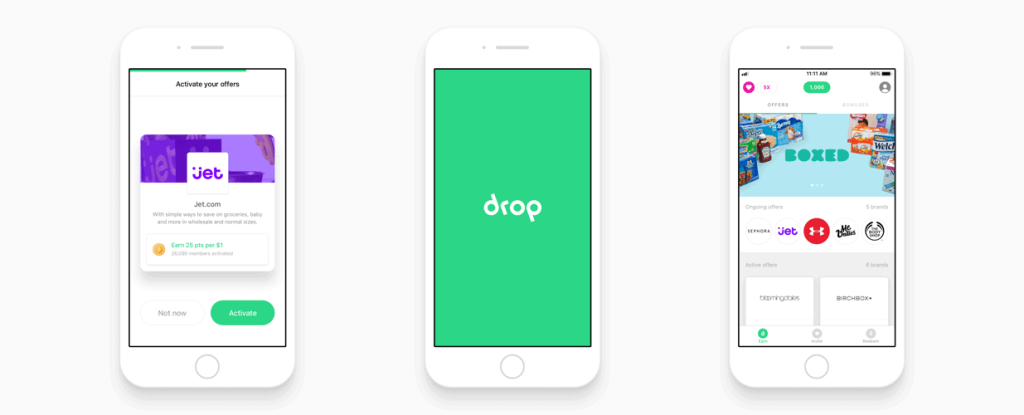As Drop Technologies Goes Global, Its Canadian Roots Are a Boon

After only one year in business, Drop, the Canada-founded next-generation loyalty rewards company and app, expanded to the U.S. in 2017. Impressed? There’s more.
In 2016, Derrick Fung — founder of Tunezy, an ecommerce and social platform for live music experiences that was acquired by SFX Entertainment in 2013 — launched Drop with $1 million in funding from ff Venture Capital, White Star Capital, and HIGHLINE vc.
Since then, Drop has:
- Landed partnerships with the likes of Starbucks, Uber, H&M, Best Buy and Walmart
- Hit number two and number three in the Canadian and American Apple App Stores
- Gained over one million users and built a team of close to 50 people.
All this in only two years’ time.
How did Derrick make it happen? With the right idea, in the right place, with the right people.
The Idea
Canadians, on average, belong to about 12 different loyalty programs — too many cards to remember to use.
Drop does away with individual programs and with physical cards. Users download the Drop app, connect their debit and credit cards and then select their favourite brands. They can also sign up for bonus offers from retailers. Then the user simply goes on with their life. When Drop’s banking APIs recognize a transaction that matches up with the user’s offers, the user earns Drop points. Those points can be redeemed for personalized rewards, like gift cards.
Derrick says he didn’t have to wait long after launching in 2016 to feel like Drop was going to make it.
“We hit number two in the Canadian App Store [next to] Tinder … We launched in the U.S. this past October and hit number three in the App Store,” Derrick says. “Once you see your apps charting so quickly and surpassing some of the big players, I think it was really a sign that we were onto something.”
The place
Toronto, where Derrick is from and Drop is based, happens to be a hotspot for loyalty program operators. LoyaltyOne, Air Miles and Aimia (formerly Groupe Aeroplan), amongst others, have headquarters in the city, making it a natural fit for Drop’s own offices.
That Drop is quite different than most of its fellow Canadian startup success stories is also of benefit. “Being a consumer tech company is also interesting. Canada is traditionally known more as a B2B market. I think that when you’re building a consumer play [like we are] and it’s working, it attracts a ton of really smart people,” Derrick says. “That’s what we’ve seen and that’s what’s made staying in Toronto so appealing to us a company.”
Being a global-minded company with Canadian headquarters can, however, pose challenges when meeting with U.S. investors. Derrick says that the right positioning has been essential to Drop’s success.
“We definitely honed in on the fact that we’re a Canadian company and focused on the fact that clearly we’ve been able to show that we can scale this business out of Canada and that when we did launch in the U.S., we quickly jumped up in the App Store,” Derrick says.
“We’re still true to our Canadian roots but at the same time we want to show that we think very globally — hence why we launched not only in North America, but have plans to scale and launch in other countries as well.”
The people
It’s the local talent pool that Drop has been able to hire from that really makes Toronto a good place for the company to be. Derrick says building a team of the “best and brightest” people has been one of his “highest highs” since starting Drop.
“We’re seeing a ton of really smart people come back from the U.S. For example, our VP of engineering Ian [Logan] was kidnapped from Silicon Valley where he was director of engineering for Airbnb. We’re seeing a ton of ‘brain gain,’” Derrick says.
“The key is if you focus on the right industry — and for us it’s loyalty, an industry that thrives in Toronto and Canada — then you’re able to track great talent and when you’re tracking great talent, you’re tracking great investors and it just leads to an [upward spiral] effect.”
Subscribe to Highline Beta newsletter!